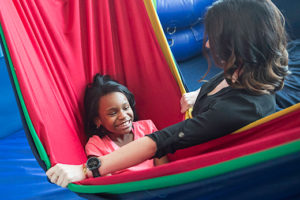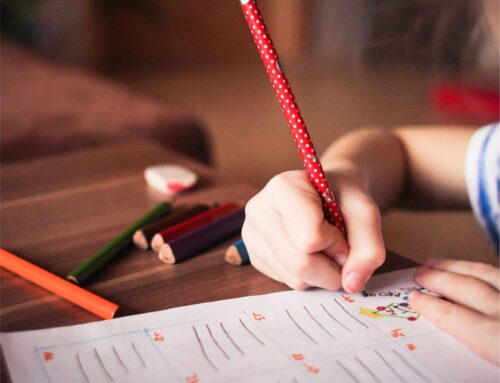Supporting Super Siblings!

In the United States, there are almost six million children with disabilities, many of whom have brothers and sisters. Neurotypical siblings of children with developmental disabilities experience a unique perspective of living in a family and environment that includes catering to the potentially intense and multifaceted level of need and attention required by an individual who has developmental disabilities.
Being a neurotypical child with a sibling who has a developmental disability, this relationship can widen and embolden a worldview that is inclusive, understanding, and empathic. However, siblings of children with developmental disabilities can often experience their own needs being overlooked, frustration regarding their sibling’s behavior, as well as feeling isolated, lonely, and angry. Often, these experiences can also be coupled by shame for even having these thoughts and feelings. Support for the siblings of children with developmental disabilities can be a variety of activities, treatment, and/or care.
One method of support for a sibling with developmental disabilities can be a support group. A support group is a therapeutic modality that is aimed to bring people together to connect, discuss, and process challenges and specific issues. Most support groups last between 60-120 minutes. A standard, “closed”, support group typically lasts between 60-90 minutes for 8-10 weeks. Some support groups are “open” and members can attend whichever meetings they see fit for an indefinite period of time.
In a closed support group for siblings of children with developmental disabilities, the structure typically includes allotting time to introduce an “ice breaker” activity or activities for group members to get to know each other and begin to identify similarities among them as a group. Following ice breakers, the group leader may propose a topic related to this experience of having a sibling with a developmental disability. Topics can include diagnosis education, safety, school challenges, communication, general concern for their sibling, and thoughts for the future. Following discussion of the chosen topic, the group typically wraps up with a summary of discussion points, strengths of the group conversation, and discussing the general agenda for the following week.
There can be many benefits of a support group for children who have siblings that have developmental disabilities. The benefits of a support group catered to siblings of children with developmental disabilities can include: improved wellbeing, improved relationship between siblings, increased knowledge of siblings’ diagnosis, decrease in loneliness, increase in emotional communication and expression, trust in parents’ ability to keep them safe, and increased empathy toward themselves and their sibling. Another benefit of a support group is for a child to have the opportunity to be around other children who experience similar things. This is in effort for the child to understand that it is not just them who experience very specific challenges regarding their sibling with a developmental disability.
If you are noticing that your child who’s sibling has a developmental disability is exhibiting increased frustration, decrease in distress tolerance, acting out, or isolating themselves, it may be helpful to consider enrolling them in a sibling support group.

Eyas Landing is a therapy clinic with a mission to provide evidence-based and family-centered therapy services for children, adolescents, and their families. The primary goal is to deliver relationship-based interventions within the most natural environments and to empower families to reach their full potential. To achieve this goal, our highly educated, compassionate staff dedicates time and expertise to create experiences that maximize therapeutic outcomes. The strength, determination, and perseverance of our clients are evident as they succeed in therapy, and ultimately in their daily lives.
Eyas Landing offers a wide range of comprehensive services including Speech Therapy, Occupational Therapy, Physical Therapy, ABA Therapy, Social Work, Family Therapy, and Neuropsych testing. Services are provided throughout the Chicagoland area via Telehealth, In-Home, and in our state of the art clinic.
Want to learn more or you have a specific question? Feel free to connect with us here!



